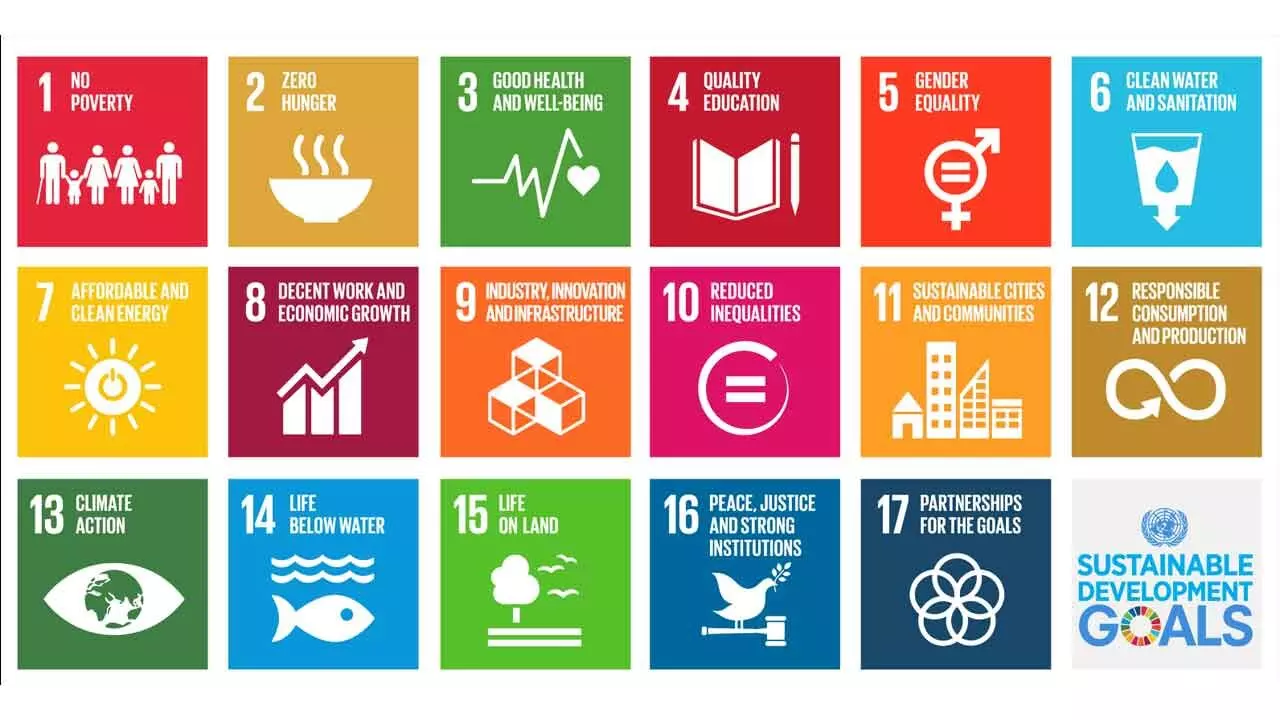Global Peace And A Better Future For All People Should Be The Goals In 2025
The dilemma between inflation control and slowing down of economy is worrying central banks world over
Global Peace And A Better Future For All People Should Be The Goals In 2025

The year 2024 has been a year of opportunities and challenges and several improvements in the global context as far as inflation control is concerned as a result of which many central banks loosened the tight monetary and financial conditions.
Amongst them USA Federal Reserve was the major central bank in terms of cutting policy rates by more than 100 basis points even though in the latest policy meeting US Federal Reserve has gone hawkish with the future outlook of only two cuts instead of he expected four as the risk of inflation is prevalent.
However, the outlook on inflation is much better than what it from the beginning of 2023.
This dilemma between inflation control and slowing down of the economy is the major issue of central banks world over. However the situation is far brighter than the earlier situation and most central banks have performed their role effectively and decisively.
In the case of the Reserve Bank of India (RBI), the tight monetary policy is continuing as inflation, particularly food inflation, is a concern. With the recent fall in real GDP growth, the repo rate of 6.5 per cent remains. It was 250 basis points high as compared to earlier repo rate of four per cent during the Covid-19 days. High inflation also affects the purchasing power, while the fall in urban consumption is due to the reduced purchasing power.
Given the situation, it is necessary to achieve four per cent inflation and ease repo rates to encourage growth of the real economy.
Another missed opportunity was in terms of handling climate change. The COP 29 resolution as regards the quantified goal at $300 billion as against the estimated requirement of $1.3 trillion was a major blow to the calculations. This will adversely impact low and less developed countries that are affected by heavy emissions emitted from the developed countries.
It is likewise with the ongoing Russia and Ukraine war, the Israel-Palestine-Hamas turmoil and disturbance in the Middle East.
These geo political situations will hit international diplomatic relations, trade and business.
According to the World Bank Group "The World faces a harsh reality: despite decades of progress, extending extreme poverty everywhere by 2030 is out of reach. Deviating climate stocks and extreme weather threaten to slow or reverse progress even more."
Eradicating poverty, an important feature of SDG by 2030 remains a distant dream. Today, around 700 million people or 8.5% of the global population - live in extreme poverty on less than $2.15 a day, while around 3.5 billion people live on less than $ 6.85 a day.
It is time world wakes up to this reality and endeavour collectively to extend help to ease the situation. Basic necessities like education, health, electricity, safe drinking water and sanitation are to be enabled in extreme low income countries.
The World Bank Group points out that 1.2 billion people around the world face life-changing risks from climate-related hazards, such as floods, heat waves, droughts and cyclones. These call for rapid and more resilient development and targetted adaptation intervention to reduce climate risks and intense mitigation measures. The World Bank data shows that in the fiscal year 2024, they delivered a record of $43 billion in climate finance and are channeling 45 per cent of annual financing towards climate action by 2025.
Record debt levels of low and middle income countries at $8.8 trillion at the end of 2023 and the interest burden to the tune of $406 billion for developing countries is a matter of great concern as these countries remain in debt-trap and are unable to invest more in critical areas like health, education and environment.
However, the world managed to avoid global recession this year and the global economy is showing of stabilizing, though the growth at 2.6 per cent in 2024 and the likely average growth of 2.7 per cent in 2025 and 2026 fall short of the 3.1 per cent average in the decade prior to Covid-19.
It is therefore imperative that 2025 should have a more favourable environment for global growth, international trade as effective means to uplift people from their poverty, create more opportunities for women and youth and pursue mitigation and adaptation processes that can reduce the burden of climate.
Meanwhile, the United Nations Foundation has listed out five global issues that needed to be addressed-peace and security; investing in a sustainable future; climate action with focus on COP 30 and IMO negotiations; gender equality and ushering in reforms in the 80-year-old United Nations.
Let us trust and strive for global peace and a better future for all people beginning from 2025.
(The author is former Chairman & Managing Director of Indian Overseas Bank)

